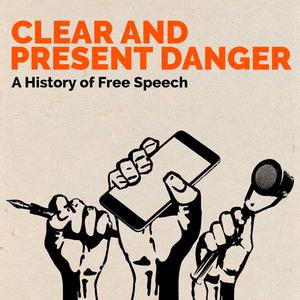
Clear and Present Danger - A history of free speech
Jacob Mchangama
- 1 hour 17 minutesEpisode 41 - Free Speech and Racial Justice: Friends or Foes?
In May 2020, protests erupted all over the U.S. after a video emerged of a white police officer killing a black man named George Floyd. Millions took to the streets in support of racial justice under the rallying cry “Black Lives Matter.” Most protests were peaceful, but several cities experienced large-scale violence. Free speech was also affected in the process. A disturbing number of incidents of police brutality and excessive force against peaceful protesters and journalists were documented. President Trump accused a Black Lives Matter leader of “treason, sedition, insurrection” and labelled protestors as “terrorists.”
But demands for structural change also led to calls for de-platforming people whose views were deemed hostile to or even insufficiently supportive of racial justice. A Democratic data analyst named David Shor was fired after tweeting a study that showed that nonviolent black-led protests were more effective than violent ones in terms of securing voter support. In another instance, New York Times staffers protested that the newspaper put “Black @NYTimes staff in danger” by running a provocative op-ed by Republican Senator Tom Cotton, which argued for deploying the military to quell riots. The newsroom revolt led to opinion editor James Bennet resigning.
Academia was affected too. A letter signed by hundreds of Princeton faculty members, employees and students demanded a faculty committee be established to “oversee the investigation and discipline of racist behaviors, incidents, research, and publication” and write “Guidelines on what counts as racist.”
Social media companies came under intense pressure to take a more robust stand on “hate speech.”
The entrenchment of so-called “cancel culture” caused around 150, mostly liberal, writers and intellectuals to sign an open “Letter on Justice and Open Debate.” The letter argued against what the signers saw as “intolerance of opposing views, a vogue for public shaming and ostracism, and the tendency to dissolve complex policy issues in a blinding moral certainty.” The letter drew sharp criticism from many journalists, writers and intellectuals for being “tone-deaf,” “privileged,” “elitist” and detracting from or even hurting the struggle for racial justice.
The wider debate often turned nasty — especially on social media — with loud voices on each side engaging in alarmist, bad faith arguments ascribing the worst intentions to their opponents. Many of those concerned about free speech warned of creeping totalitarianism imposed by “social justice warriors” run amok, intent on imposing a stifling orthodoxy of “wokeism.” Some confused vehement criticism of a person’s ideas with attempts to stifle that person’s speech. On the other hand, some racial justice activists outright denied the existence of “cancel culture” and failed to distinguish between vehement criticism of a person’s ideas and calling for that person to be sanctioned by an employer, publisher or university. Some even accused free speech defenders of being complicit in or actual defenders of white supremacy and compared words deemed racially insensitive with violence.
Underlying these debates is a more fundamental question. Is a robust and principled approach to free speech a foundation for — or a threat to — racial justice?
To help shed light on this question, this episode will focus on what role the dynamic between censorship and free speech has played in maintaining and challenging racist and oppressive societies. The episode will use American slavery and segregation, British colonialism, and South African apartheid as case studies.
In this episode we will explore:
- How Southern legislators and congressmen adopted some of the most draconian restrictions of free speech in American history, while Southern mobs enforced a “slaver’s veto” to curb abolitionist speech and ideas;
- How Southern demands that the Federal government and Northern states actively police abolitionist ideas kicked off a debate over first principles and the role of free speech in America;
- How Southern “cancel culture” purged a professor critical of slavery from the University of North Carolina;
- How women played a critical role in mobilizing opinion against slavery and defying the slaver’s veto;
- Why Frederick Douglass believed that “The right of speech is a very precious one, especially to the oppressed;”
- How the First Amendment did little to end the discrimination and oppression of African-Americans immediately after the abolishment of slavery;
- How the civil rights movement and its civil libertarian allies advanced group rights of discriminated minorities through the dramatic expansion of constitutionally protected individual rights, not least First Amendment freedoms;
- Why recently deceased congressman John Lewis believed that “Without freedom of speech and the right to dissent, the Civil Rights movement would have been a bird without wings;”
- How the British used laws against sedition and hate speech to target anti-colonial movements and silence dissidents like Mahatma Gandhi;
- How Mahatma Gandhi viewed the freedoms of speech and association as “the two lungs that are absolutely necessary for a man to breathe the oxygen of liberty;”
- How censorship and suppression was a key component of South African apartheid, which punished expressions “hateful against the white man” and kept an index of prohibited books to silence anti-apartheid activists;
- How Nelson Mandela only abandoned peaceful resistance when the regime had shut down all lawful modes of expressing opposition to white supremacy;
- Why Mandela believed that free speech should constitute a core value of South African democracy and that “No single person, no body of opinion, no political or religious doctrine, no political party or government can claim to have a monopoly on truth.”
Why have kings, emperors, and governments killed and imprisoned people to shut them up? And why have countless people risked death and imprisonment to express their beliefs? Jacob Mchangama guides you through the history of free speech from the trial of Socrates to the Great Firewall.
You can subscribe and listen to Clear and Present Danger on Apple Podcasts, Google Play, YouTube, TuneIn, and Stitcher, or download episodes directly from SoundCloud.
Stay up to date with Clear and Present Danger on the show’s Facebook and Twitter pages, or visit the podcast’s website at freespeechhistory.com. Email us feedback at [email protected].
21 August 2020, 8:22 am - 51 minutes 12 secondsSpecial Edition - Suzanne Nossel
In this Special Edition, we will zoom in on current challenges to free speech – specifically in the US. With me to discuss this timely subject, I have CEO of PEN America, Suzanne Nossel, who has just published her new book Dare to Speak: Defending Free Speech for All.
The conversation evolves the main conclusions of Suzanne's book including matters such as:
- How Suzanne´s fight against an international blasphemy law at the UN inspired her to write the book
- How Suzanne's 20 principles for free speech aims to provide a toolset needed to speak one's mind in today's diverse, digitized, and highly-divided society without resorting to curbs on free expression
- How we deal with hate speech without sacrificing free speech
- What we can do to avoid harm when speaking
- How so-called cancel culture has migrated from campus to elite media, corporate and cultural institutions
- How to balance social media platforms right to control public discourse and the snowballing societal consensus that media platforms need to do more to mitigate the harms of content posted on their services.
Suzanne Nossel is the CEO of PEN America. She has also served as the Chief Operating Officer of Human Rights Watch and as Executive Director of Amnesty International USA; and held senior State Department positions in the Clinton and Obama administrations.
Why have kings, emperors, and governments killed and imprisoned people to shut them up? And why have countless people risked death and imprisonment to express their beliefs? Jacob Mchangama guides you through the history of free speech from the trial of Socrates to the Great Firewall.
You can subscribe and listen to Clear and Present Danger on Apple Podcasts, Google Play, YouTube, TuneIn, and Stitcher, or download episodes directly from SoundCloud.
Stay up to date with Clear and Present Danger on the show’s Facebook and Twitter pages, or visit the podcast’s website at freespeechhistory.com. Email us feedback at [email protected].
31 July 2020, 8:14 am - 38 minutes 55 secondsSpecial Edition - Daphne Keller & Kate Klonick
“Internet Speech Will Never Go Back to Normal,” declared the headline of a recent Atlantic article by law professors Jack Goldsmith and Andrew Keane Woods. The piece argues that the U.S. must learn from China in regulating the internet. “[S]ignificant monitoring and speech control are inevitable components of a mature and flourishing internet,” the authors write, “and governments must play a large role in these practices to ensure that the internet is compatible with a society’s norms and values.”
But is this conclusion the only one available from the fallout of the coronavirus crisis? Or are there other ways to ensure a mature and flourishing internet in which free speech and public health can coexist? And could Facebook’s new Oversight Board be one of the answers?
Here to discuss the issue are two of the biggest experts on the subject of internet law and platform regulation: Daphne Keller, Platform Regulation Director at the Stanford Cyber Policy Center (formerly an Associate General Counsel at Google); and Kate Klonick, assistant professor at St. John’s University teaching internet law and information privacy, and a fellow at Yale Law School’s Information Society Project.
In this episode we discuss:
- Whether social media platforms like Facebook, Twitter, and YouTube have been paragons of responsibility or the lapdogs of censorious governments, when it comes to content moderation?
- If the current crisis justifies lowering the threshold for when content is deemed “harmful” or if we should be even more vigilant about what stays online?
- Are there specific problems in the policies and guidelines laid out by health authorities like WHO and CDC, which have changed their position on issues like facemasks and included inaccurate information about the nature of COVID-19?
- What is the impact and outcome of automated content moderation based on the performance during the pandemic?
- Whether democracies — particularly European ones — have weakened online freedom by choosing to respond to legitimate concerns about hate speech, disinformation, and terrorist content with illiberal laws?
Show notes:
Jack Goldsmith and Andrew Keane Woods in The Atlantic: “Internet Speech Will Never Go Back to Normal”
Samuel Walker: “Hate Speech: The History of an American Controversy”
Daphne Keller’s Hoover Institution essay: “Who Do You Sue?”
Why have kings, emperors, and governments killed and imprisoned people to shut them up? And why have countless people risked death and imprisonment to express their beliefs? Jacob Mchangama guides you through the history of free speech from the trial of Socrates to the Great Firewall.
You can subscribe and listen to Clear and Present Danger on Apple Podcasts, Google Play, YouTube, TuneIn, and Stitcher, or download episodes directly from SoundCloud.
Stay up to date with Clear and Present Danger on the show’s Facebook and Twitter pages, or visit the podcast’s website at freespeechhistory.com. Email us feedback at [email protected].
14 May 2020, 12:17 pm - 32 minutes 2 secondsSpecial Edition - Dunja Mijatović
Since the coronavirus became a pandemic, governments around the world have adopted a wide range of measures affecting basic human rights. This includes many of the 47 member states of the Council of Europe all of whom are legally bound by the European Convention on Human Rights. Most states have limited the freedoms of assembly and movement, some have also limited privacy and data protection and then there are some who have restricted freedom of expression through laws or policies banning false information.
To discuss the implications for freedom of expression is none other than the Council of Europe Commissioner for Human Rights, Dunja Mijatović, who previously served as the OSCE Representative on Freedom of the Media.
In a statement on April 3rd, Dunja Mijatović wrote: “The global health problems caused by COVID-19 require effective measures to protect people’s health and lives. This includes combating disinformation that may cause panic and social unrest. Regrettably some governments are using this imperative as a pretext to introduce disproportionate restrictions to press freedom; this is a counterproductive approach that must stop. Particularly in times of crisis, we need to protect our precious liberties and rights."
In this conversation we discuss:
- The measures countries like Hungary, Romania, Russia and Azerbaijan, that typically target false information, have taken during the crisis.
- How bad the situation has become for free expression in Europe because of corona-related restrictions.
- Which types of restrictions that are particularly worrying and which countries that are of specific concern.
- If combating misinformation is vital during this crisis, why is it a problem if states adopt exceptional measures? Article 10 paragraph 2 of the European Convention on Human Rights allows governments to interfere with free expression for the purpose of “public safety” and the “protection of health.”
- According to case law of the European Court of Human Rights, the member states have a certain margin of appreciation when it comes to finding the right balance between convention rights (free speech) and competing interests (such as health and public safety). On the one hand the threat from Covid-19 give states a wide margin on appreciation, but on the other hand one could argue that access to information and scrutiny and debate of emergency measures is just as important.
- What types of measures that would be consistent with freedom of expression. Would it be legitimate to ban or remove statements that contradicted health advice by WHO or the national health authorities?
- Should journalists and media have more freedom than ordinary citizens expressing themselves on social media, blogs and so on.
Full Text of the April 3rd statement
Home page for Dunja Mijatović
4 May 2020, 1:41 pm - 37 minutes 7 secondsSpecial Edition - Monika Bickert
The coronavirus has disrupted life as we know it. Billions of people across the world are caught in varying degrees of lockdowns with severe restrictions on their freedom of movement. But while our physical world has shrunk, cyberspace remains wide open. And there is no shortage of information as the internet overflows with torrents of data, news, and updates about the ongoing crisis. But in parallel with the COVID-19 pandemic, the World Health Organization has warned of an “infodemic” of mis- and disinformation spreading through social media and messaging apps.
Policymakers at social media platforms are acting like gatekeepers, deciding what content is sufficiently healthy for their users around the world to consume. These decisions have real consequences for the practical exercise of freedom of speech and access to information for billions of people. With me to discuss how Facebook is navigating this unprecedented situation is Monika Bickert, who is the Head of Global Policy Management at Facebook with responsibility for content moderation.
In this conversation we discuss:
- What policies Facebook has put in place to counter disinformation on its platforms;
- How much content has been downgraded and removed due to disinformation; compared to the period before COVID-19;
- How Facebook interprets the risk of “imminent physical harm” amidst a pandemic;
- How the shutdown has led to a sharp decrease of available content moderators and a reliance on automated content moderation to flag misinformation;
- Why Facebook has removed Brazilian President Jair Bolsonaro’s comments about the supposed effects of the drug hydroxychloroquine, but not President Trump’s comments about the same drug;
- The pros and cons of relying on the guidelines of health authorities like the Centers for Disease Control and Prevention and WHO to determine what constitutes misinformation even though these authorities have revised statements on issues such as the use of face masks (CDC) and the potential for human-to-human transmission (WHO);
- How Facebook uses a network fact-checkers to rate the truthfulness of stories, but who is fact-checking the fact-checkers?
17 April 2020, 9:32 am - 1 hour 15 minutesEpisode 40 - The Age of Human Rights: Tragedy and Triumph
In 2014, Saudi Arabian blogger Raif Badawi was sentenced to 10 years in prison and 1,000 lashes for insulting Islam by promoting secular values on his blog Free Saudi Liberals.
Raif Badawi’s fate would have been familiar to Soviet refusenik and human rights activist Natan Sharansky, and many other dissidents in the Soviet Bloc, who also faced long prison sentences and inhuman treatment during the Cold War. Both theocratic and communist states proclaim to be in possession of the “truth.” Consequently, they punish those who engage in religious or ideological heresy, leaving little room for the idea of human rights.
So, it is no surprise that in 1948, Saudi Arabia and six European Communist states were among the eight countries that did not vote in favor of the United Nations Universal Declaration of Human Rights.
Both communist and Islamic states developed cautious strategies to engage with the growing human rights system in order to seek legitimacy without undermining their grip on power. One key strategy was to pull the teeth from the protection of free expression by including simultaneous obligations to prohibit the broadly defined concept of “incitement to hatred.” But ultimately the very human rights language which the communist states had sought to contain ended up eroding the communist stranglehold on power.
But the repressive legacy of Communism had a long half-life, even after the ideology itself was dumped on the ash heap of history at the end of the Cold War. The countries in the Organization of Islamic Cooperation — the OIC — sought to exploit the very loopholes that the communist states had introduced for their own purposes. Instead of protecting an atheistic and materialistic ideology, they advanced an interpretation of human rights where restrictions on free speech protected theistic and metaphysical Islamic doctrines from criticism and satire. And while a concerted global effort by democracies successfully beat back the OIC offensive at the UN, this conflict is still ongoing. In fact, the democracies and human rights system of Western Europe have internalized and expanded limitations on free speech, which they once deemed dangerous. This raises the question of just how robust the future of free speech — and the culture on which it depends — really is.
In this episode we will explore:
- How the Communist East and the Capitalist West clashed over the limits of free speech when drafting the Universal Declaration of Human Rights and the International Covenant on Civil and Political Rights at the UN;
- How Eleanor Roosevelt became a dogged and eloquent defender of principled free speech protections and warned against Soviet attempts to abuse hate speech restrictions to punish all dissent;
- How the American position at the UN clashed with domestic laws targeting communists under the Second Red Scare and McCarthyism;
- How the Soviet Bloc used laws against “incitement” to punish hundreds of dissidents and human rights activists behind the Iron Curtain;
- How the Helsinki Final Act provided dissidents with a tool to hold their governments morally accountable for human rights violations;
- How Western states and human rights NGOs gave dissidents like Vaclav Havel and Andrei Sakharov a voice and increased the pressure on the Soviet Bloc;
- How the Helsinki Final Act contributed to the fall of Communism;
- How, after the end of the Cold War, the OIC launched a campaign to prohibit “defamation of religions” at the UN;
- How the OIC campaign managed to secure majorities at the UN and conflate blasphemy and hate speech;
- How the OIC campaign was defeated by the Obama administration and the application of the Supreme Court decision in Brandenburg v. Ohio; and
- How case law from the European Court of Human Rights undermines efforts to prevent future abuse of human rights to limit freedom of expression.
Why have kings, emperors, and governments killed and imprisoned people to shut them up? And why have countless people risked death and imprisonment to express their beliefs? Jacob Mchangama guides you through the history of free speech from the trial of Socrates to the Great Firewall.
You can subscribe and listen to Clear and Present Danger on Apple Podcasts, Google Play, YouTube, TuneIn, and Stitcher, or download episodes directly from SoundCloud.
Stay up to date with Clear and Present Danger on the show’s Facebook and Twitter pages. Email us feedback at [email protected].
4 February 2020, 3:28 am - 1 hour 3 minutesEpisode 39 - The Totalitarian Temptation – Part II - Der Untergang
In November 2019 German Chancellor Angela Merkel gave a passionate speech to the German Bundestag. Merkel said “We have freedom of expression in this country…. But freedom of expression has its limits. Those limits begin where hatred is spread … where the dignity of other people is violated”.
Merkel grew up under a stifling communist dictatorship and serves as chancellor of a country where vicious propaganda once helped paved the way for genocide. So few have stronger credentials when it comes to balancing the pros and cons of free speech. And Merkel´s words of warning are impossible to separate from Germany´s Nazi past following the democratic collapse of the Weimar republic. There can be no doubt that Merkel and the German commitment to “militant democracy” is motivated by a sincere belief, to paraphrase the political philosopher Karl Popper´s famous “paradox of tolerance,” that democracies must be intolerant towards the intolerant. .
But there are also those who argue that criminalizing speech is a cure worse than the disease in democracies. To use a deliberately provocative term, laws against free speech might serve as “enabling acts” for authoritarian regimes to crush dissent once in power.
George Orwell reached the opposite conclusion of Merkel. In the unpublished foreword to his famous novel Animal Farm, Orwell warned against the “widespread tendency to argue that one can only defend democracy by totalitarian methods”. Orwell cautioned “that if you encourage totalitarian methods, the time may come when they will be used against you instead of for you.”
In this episode we will explore how Weimar Germany was deeply conflicted about the value of free speech. On the one hand, freedom of expression and the press were constitutionally protected. On the other hand, the constitution allowed censorship of cinema and “trash and filth” in literature. Weimar Germany enjoyed a vibrant public sphere with thousands of newspapers, daring art, great intellectuals and groundbreaking science, and yet, authorities used draconian laws and emergency decrees to curb newspapers and individuals seen as fanning the flames of political violence by anti-democratic groups on the right and left. This included one Adolf Hitler and his National Socialist Party.
When the Nazis finally assumed power, they not only used terror and violence, but also turned the laws and principles supposed to protect the democratic order in to weapons against democracy, paving the way for totalitarianism, war, and genocide.
In this episode we will explore:
- How Weimar Germany abolished censorship and created a vibrant public sphere;
- How democracy was challenged by violent extremists on the political right and left;
- How Adolf Hitler viewed press freedom and free expression as corrosive principles which allowed “Poison to enter the national bloodstream and infect public life”;
- How Hitler used his devastating talent for public speaking to whip the crowds in Bavarian beer halls into a frenzy of hatred and become leader of the NSDAP;
- How Weimar authorities failed to enforce bans against violent paramilitary groups on the right;
- How Hitler and anti-Semitic Nazi newspapers like Der Stürmer and Der Angriff used bans against public speaking and punishments for speech crimes to gain propaganda victories and attract attention;
- How laws and emergency decrees to defend the republic led to increasingly draconian measures against the press, including 284 temporary bans of newspapers in Prussia alone, in 1932;
- How Hitler used the constitution and existing laws to suspend the freedoms of speech, assembly, and association and terrorize political opponents through violence and mass detentions without trial in concentration camps;
- How Hitler turned Germany into a one-party state in less than six months;
- How news laws turned any form of dissent, including jokes and rumours, into serious speech crimes;
- How Joseph Goebbels and his Ministry of Propaganda and Enlightenment ensured the complete submission of the press, literature and art to the dictates of Nazi ideology;
- How some Germans continued to dissent including the theologian Dietrich Bonhoeffer;
- How the combination of ideological censorship and propaganda paved the way for the shocking brutality of the German war machine and ultimately for genocide.
Why have kings, emperors, and governments killed and imprisoned people to shut them up? And why have countless people risked death and imprisonment to express their beliefs? Jacob Mchangama guides you through the history of free speech from the trial of Socrates to the Great Firewall.
You can subscribe and listen to Clear and Present Danger on Apple Podcasts, Google Play, YouTube, TuneIn, and Stitcher, or download episodes directly from SoundCloud.
Stay up to date with Clear and Present Danger on the show’s Facebook and Twitter pages, or visit the podcast’s website at freespeechhistory.com. Email us feedback at [email protected].
27 January 2020, 2:31 pm - 52 minutes 13 secondsEpisode 38 - The Totalitarian Temptation – Part I
In George Orwell’s 1946 work, “The Prevention of Literature,” he wrote:
[O]rganised lying … is … integral to totalitarianism, [and] would … continue even if concentration camps and secret police forces had ceased to be necessary. … A totalitarian state is in effect a theocracy, and its ruling caste, in order to keep its position, has to be thought of as infallible. … Totalitarianism demands, in fact, the continuous alteration of the past, and in the long run probably demands a disbelief in the very existence of objective truth.
As we shall see, the Orwellian diagnosis of totalitarianism was surgical in its precision. But despite the defeat of European communism, fascism, and Nazism, the dark and bloody past of totalitarianism still casts long shadows on European liberal democracies. On the one hand, freedom of expression is a foundational value ensuring the pluralism and autonomy that is anathema to totalitarianism. On the other hand many countries restrict free speech to safeguard against totalitarian propaganda aimed at undermining democracy. This raises the question: Should we be most afraid of totalitarian movements abusing free speech to abolish other freedoms and democracy, or of democracies abusing limits on free speech to silent dissent? In this first of a two-part episode on totalitarianism in Communist Russia, Fascist Italy, and Nazi Germany, we will focus on the rise of communism and Italian fascism and the effects of these ideologies on free expression. Hopefully this journey into the darkest of pasts will help shed light on how to grapple with one of democracy’s eternal and inevitable dilemmas: What should be the limits of free speech?
In this episode we will explore:
- How Tsarist Russia was the last European great power to abolish preventive censorship;
- How the fall of the Tsarist regime led to a brief period of full press freedom;
- How, once in power, the very first legislative act of the Bolsheviks was to suppress the “bourgeois press” by closing down hundreds of publications and print shops;
- How Lenin and Trotsky defeated Bolshevik and socialist opponents who demanded an end to press censorship in revolutionary Russia;
- How Lenin combined suffocating censorship with terror against “class enemies”;
- How Stalin expanded Lenin’s repressive censorship machinery and radicalized the terror, killing millions of people;
- How Mussolini went from working as a socialist journalist to founding a fascist newspaper;
- How fascist violence and intimidation paved the way for Mussolini to assume power;
- How Mussolini combined censorship and propaganda to ensure ideological uniformity of the press;
- How fascist blackshirts and secret police kept political opponents cowed through surveillance, intimidation, and murder; and
- How a novel on interracial love infuriated Mussolini and caused book censorship to be severely expanded.
Why have kings, emperors, and governments killed and imprisoned people to shut them up? And why have countless people risked death and imprisonment to express their beliefs? Jacob Mchangama guides you through the history of free speech from the trial of Socrates to the Great Firewall.
You can subscribe and listen to Clear and Present Danger on Apple Podcasts, Google Play, YouTube, TuneIn, and Stitcher, or download episodes directly from SoundCloud.
Stay up to date with Clear and Present Danger on the show’s Facebook and Twitter pages, or visit the podcast’s website at freespeechhistory.com. Email us feedback at [email protected].
15 January 2020, 8:59 am - 50 minutes 25 secondsEpisode 37 - Expert opinion: The History of Mass Surveillance, with Andreas Marklund
In 2013 the NSA contractor Edward Snowden sent shockwaves through the American government when he leaked information exposing a number of vast mass surveillance programs providing the US Government and allies access to global digital communication networks. The harvesting of data has been aided by the vast data collection by big Tech Companies like Google and Facebook whose business model relies on knowing more about their users then their users know about themselves. The combination of state and corporate mass surveillance of the digital sphere has obvious consequences for both freedom of expression and information. Private conversations are rarely ever truly private and the centralization of communication platforms allows both governments and corporations to censor and control the flow of information. This development has changed public perception of the digital age from one of unlimited freedom, promise and possibilities to cynicism, fear and paranoia. But the age of mass surveillance was not ushered in with the Internet. In fact just as today mass surveillance was dominated by the leading liberal democracy of its day, when Great Britain laid the foundation at the outbreak of World War I. And as in the 21. century the issues that drove the push for mass surveillance and censorship at scale was national security and fears of extremism, disinformation and propaganda.
With me to discuss the history of mass surveillance and its consequences for freedom of expression and information is Andreas Marklund who is the head of research at the ENIGMA Museum of Communication, in Copenhagen.
In this conversation we will explore:
- How Britain built a system of mass surveillance through controlling and tapping global communication cables during WWI
- How Britain´s interception of the so-called Zimmerman telegram changed the course of history
- How “fake news” and propaganda became a main concern and cause for censorship and manipulation of information by governments
- How news agencies like Reuters became involved in this communication war through the influence of the British Ministry of Information
- How telephone communications were systematically surveilled and censored in Scandinavia
- How mass surveillance and censorship justified by war became useful tools for more general surveillance
- How the development of radio caused panics among governments who could no longer control or access the flow of information across borders?
- How Nazi Germany exploited mass surveillance “to give the government…such far-reaching insight into the thoughts, feelings, and aspirations of the entire German people as had never been known in all history”.
- The similarities and differences between the mass surveillance systems built during WWI and those of today
- How mass surveillance differs in democracies and totalitarian states
- Whether mass surveillance is an inevitable part of modern life even in liberal democracies
Why have kings, emperors, and governments killed and imprisoned people to shut them up? And why have countless people risked death and imprisonment to express their beliefs? Jacob Mchangama guides you through the history of free speech from the trial of Socrates to the Great Firewall.
You can subscribe and listen to Clear and Present Danger on Apple Podcasts, Google Play, YouTube, TuneIn, and Stitcher, or download episodes directly from SoundCloud.
Stay up to date with Clear and Present Danger on the show’s Facebook and Twitter pages, or visit the podcast’s website at freespeechhistory.com. Email us feedback at [email protected].
30 December 2019, 11:21 am - 55 minutes 14 secondsEpisode 36 - Expert opinion: Thomas Healy on how Oliver Wendell Holmes changed the history of free speech in America
On March 4, 1801, Thomas Jefferson, the newly elected president, gave his first inaugural address. Jefferson eloquently dismissed the logic behind the Sedition Act of 1798, which had sent Republican critics of then-Federalist President John Adams to prison:
We are all republicans: we are all federalists. If there be any among us who would wish to dissolve this Union, or to change its republican form, let them stand undisturbed as monuments of the safety with which error of opinion may be tolerated, where reason is left free to combat it.
Based on this strong commitment to a robust protection of free speech, one might have expected the First Amendment to play a key role in entrenching the Jeffersonian vision of free expression. But instead, it became an almost dead letter for more than a century until revived by an iconic but unlikely champion of the First Amendment: Supreme Court Justice Oliver Wendell Holmes.
In this conversation, professor Thomas Healy explains how Wendell Holmes changed his mind on free speech and laid the foundation for the current strong legal protection of the First Amendment. Thomas Healy is a professor of law at Seton Hall University School of Law and the author of the award-winning book “The Great Dissent: How Oliver Wendell Holmes Changed His Mind--And Changed the History of Free Speech in America”.
The conversation will explore:
- Why the First Amendment remained a dead letter in 19th century America.
- How Oliver Wendell Holmes’ background shaped his opinions and outlook.
- How Oliver Wendell Holmes long upheld a “Blackstonian” conception of free speech protecting only against prior restraints on, not subsequent punishments of, speech.
- How the Blackstonian conception of free speech permitted the federal and local governments to restrict and punish everything from peaceful public protests, obscenity, and political speech of “bad tendency.”
- How the Espionage Act of 1917 and the Sedition Act of 1918 led to dramatic restrictions of political speech and indictments of thousands of activists protesting American participation in World War I.
- The remarkable development in Wendell Holmes’ conception of the First Amendment, from his opinion upholding conviction in the 1919 case of Schenck v. United States to his famous dissenting opinion in Abrams v. United States.
- How a number of young scholars like Learned Hand, Harold Laski, Zechariah Chafee, and Felix Frankfurter were instrumental in changing Wendell Holmes’ mind on the limits of free speech.
- How Oliver Wendell Holmes introduced the clear and present danger test, which would become an important test under First Amendment law over the coming decades.
- Whether Wendell Holmes’ legacy will endure in the 21st century, and would he even want it to in the digital age?
Why have kings, emperors, and governments killed and imprisoned people to shut them up? And why have countless people risked death and imprisonment to express their beliefs? Jacob Mchangama guides you through the history of free speech from the trial of Socrates to the Great Firewall.
You can subscribe and listen to Clear and Present Danger on Apple Podcasts, Google Play, YouTube, TuneIn, and Stitcher, or download episodes directly from SoundCloud.
Stay up to date with Clear and Present Danger on the show’s Facebook and Twitter pages, or visit the podcast’s website at freespeechhistory.com. Email us feedback at [email protected].
19 December 2019, 11:57 am - 54 minutes 10 secondsEpisode 35 - White Man´s Burden: Empire, Liberalism and Censorship
During the mass protests that have rocked Hong Kong since June 2019 pro-democracy protestors have waved Union Jack flags and been singing God Save the Queen. A clear rejection of the authoritarian political system of mainland China in favor of the political system inherited from the British colonial past based on the rule of law and political liberties including freedom of the press.
The symbolic value of the pro-British sentiments of Hong Kong´s protestors would not be lost on Britain´s imperial masterminds and administrators. Many of whom thought that empire and liberalism went hand in hand. In a combination of genuine goodwill and blatant ethnocentrism, the British colonizers took on the burden of civilizing the world and ensuring that the sun would never set on press freedom.
But the actual practice of British colonialism was very different from the idealized version dreamt up by English liberal imperialists and modern Hong Kong protestors. Colonial officials were more than willing to use censorship and repression when news and ideas were thought to threaten British interests in places like Hong Kong, India and Africa. The laws and practices that they used for those purposes not only stifled criticism of colonialism but also did so on the basis of crude racial and ethnic prejudices. This created a parallel system of censorship and repression that severely undermined the liberal credentials of Britain and included victims like Mahatma Gandhi and the Kenyan activist Harry Thuku. And as we shall see the British legacy of censorship and repression still shapes the climate for free speech in some former colonies.
Much the same schizophrenia characterized France´s colonial empire supposedly built on its commitment to universal human rights stretching back to the Declaration of the Rights of Man. A commitment that became difficult to sustain when the colonized insisted that freedom and imperialism was incompatible.
In this episode, we´ll see how British and French colonial authorities struggled to reconcile their commitment to liberalism with colonial empire and
- How the British crafted an Indian Penal Code that criminalized sedition, communal hate speech and blasphemy
- How prominent Indian nationalists like Bal Gangadhar Tilak and Mahatma Gandhi were convicted of sedition
- How Gandhi gave a stirring defense of the fundamental value of free speech when tried for sedition
- How Indians in East Africa collaborated with Africans in spreading anti-colonial dissent in Indian owned newspapers and publications,
- How African nationalists protesting racist policies and exploitation were exiled by the British
- How British West Africa developed a free and thriving press until British repression in the 1930s
- How the British introduced preventive censorship in Hong Kong during World War 1
- How the British maintained a separate system of preventive censorship of Chinese language newspapers in Hong Kong even after the war,
- How the British adopted special censorship guidelines for cinema based on crude racial and ethnic considerations
- How Chinese language newspapers mounted a principled defense of press freedom in Hong Kong,
- How the French in Indochina (Vietnam) went from tolerance to active repression of local newspapers,
- How African activists were exiled to the “Dry Guillotine” of the Mauritanian desert when protesting French rule
Why have kings, emperors, and governments killed and imprisoned people to shut them up? And why have countless people risked death and imprisonment to express their beliefs? Jacob Mchangama guides you through the history of free speech from the trial of Socrates to the Great Firewall.
You can subscribe and listen to Clear and Present Danger on Apple Podcasts, Google Play, YouTube, TuneIn, and Stitcher, or download episodes directly from SoundCloud.
Stay up to date with Clear and Present Danger on the show’s Facebook and Twitter pages, or visit the podcast’s website at freespeechhistory.com. Email us feedback at [email protected].
2 December 2019, 3:00 pm - More Episodes? Get the App
Your feedback is valuable to us. Should you encounter any bugs, glitches, lack of functionality or other problems, please email us on [email protected] or join Moon.FM Telegram Group where you can talk directly to the dev team who are happy to answer any queries.
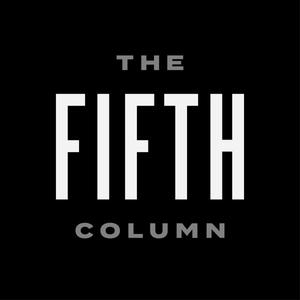 The Fifth Column
The Fifth Column
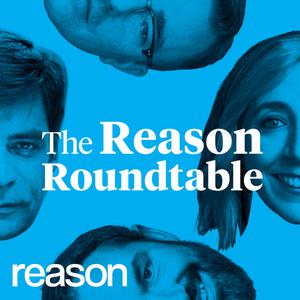 The Reason Roundtable
The Reason Roundtable
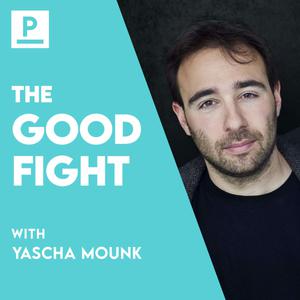 The Good Fight
The Good Fight
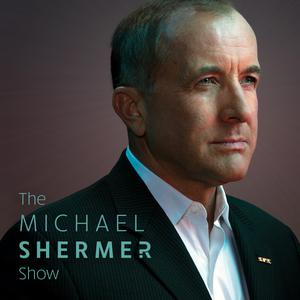 The Michael Shermer Show
The Michael Shermer Show
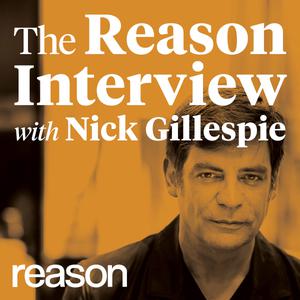 The Reason Interview With Nick Gillespie
The Reason Interview With Nick Gillespie
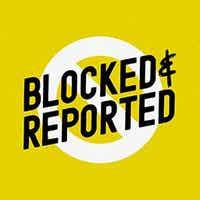 Blocked and Reported
Blocked and Reported